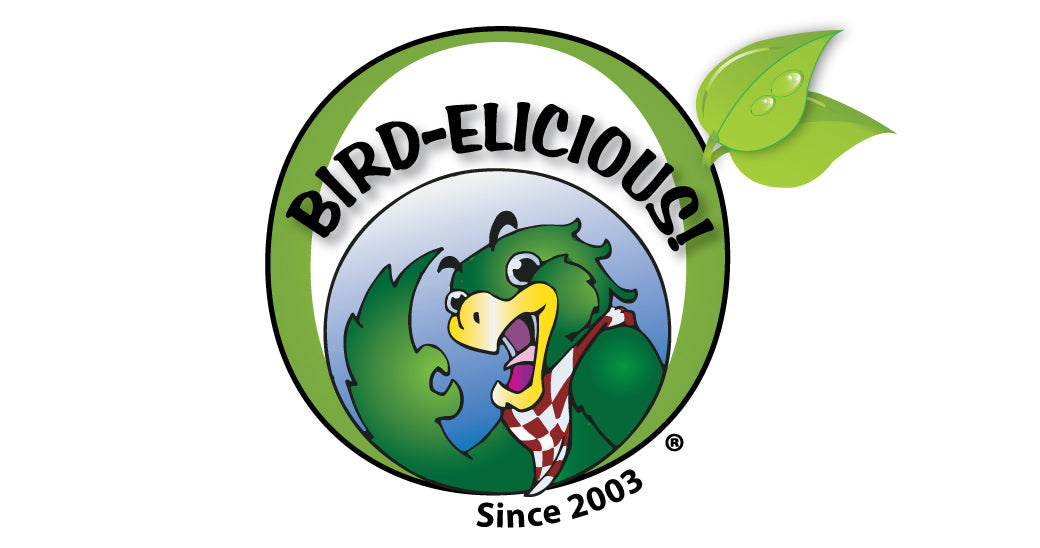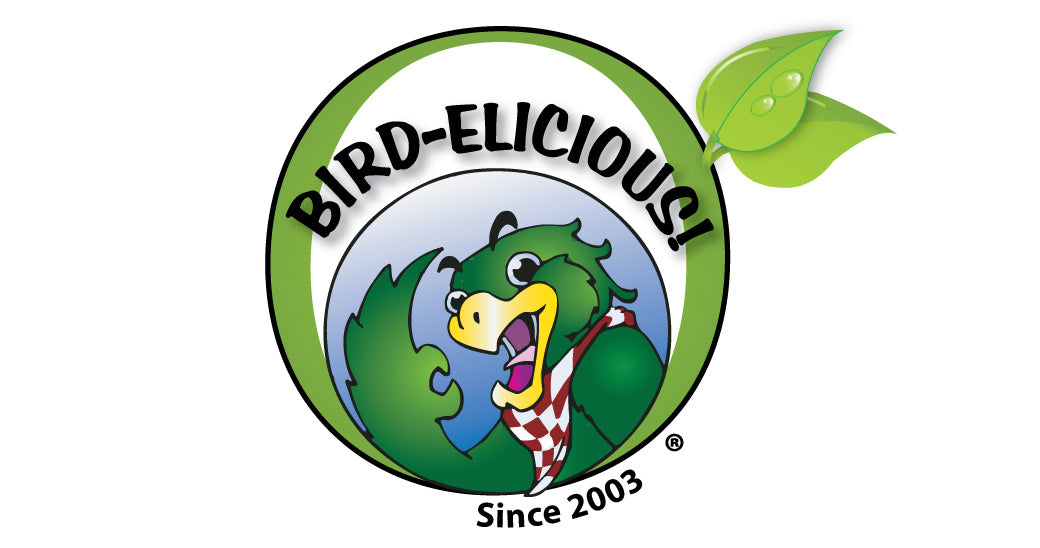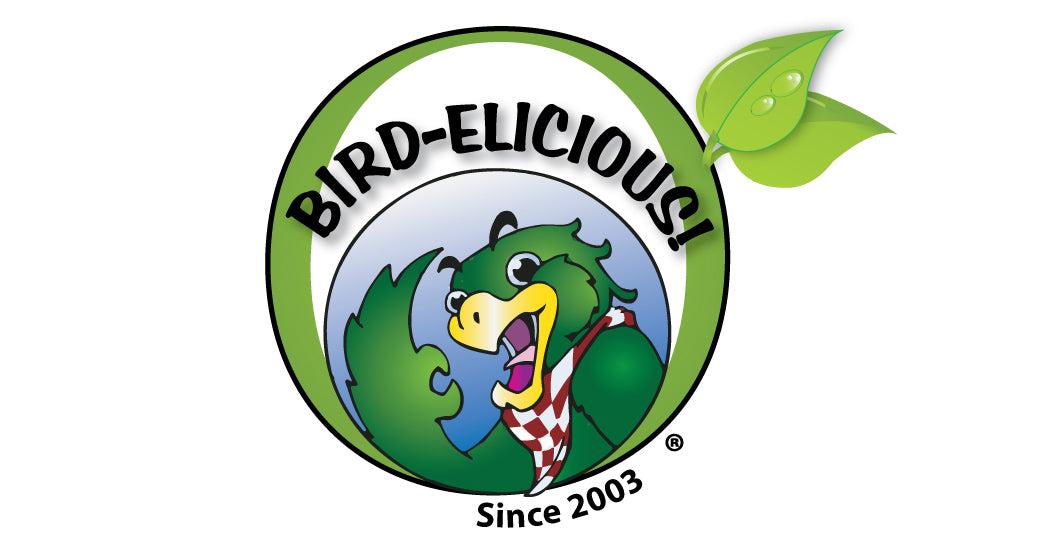We all love it when our birds show the ability to be “teach-able.” When our birds perform their first “step-up” for us it’s akin to our child taking their very first step. And let’s be honest, we need our birds to take some commands from us in order to manage them in our homes. We have to be able to get them in and out of their cages, move them from place to place and calmly handle them for beak trims, talon trims, bathing and visits to the veterinarian.
But how much training is too much training? When does the training turn in to teaching our birds to perform circus tricks? And does that potentially do harm to our birds psyche? Research shows that it may.
While some birds might be perfectly fine with learning new tricks and more than happy to do so, others may become overly stressed about performing for us. It’s just like certain humans, some do well under pressure and others do not.
It all has to do with the neurotransmitters. If you have been following my research regarding neurotransmitters you are learning that they begin their production in the “gut” or more eloquently stated, in the digestive tract. If the gut flora is healthy the neurotransmitters get off to a good start, but if the gut flora is unhealthy that means the neurotransmitters get off to an unhealthy start. What does this mean for the way a bird thinks? It means that a bird cannot process its thoughts and emotions correctly and this makes for a bird who has emotional imbalances.
If we want to blame a bird’s aggression, moodiness, lack of appetite, disinterest in us and feather destruction on behavior we have to start with the neurotransmitters, this is where it all begins. Just like us humans a bird doesn’t just decide to be “bad” or “uncontrollable” or “obstinate.” It’s in a bird’s intrinsic nature to be happy, playful and active, but when the neurotransmitters are messed up a bird can’t help itself because it can’t think right.
This is why when you take a bird who engages in feather destruction or self-mutilation to the vet you often leave with something like Prozac or Haloperidol. These drugs work on the neurotransmitters of the brain, mainly dopamine. Both of these work to regulate dopamine in some way to control the amount of dopamine in the brain so that serotonin is the main neurotransmitter at play, not dopamine. Please, don’t think I am advocating the use of pharmaceuticals for our birds, I am not. Drugs only cover up what is really going on inside of our birds, they don’t get to the root of the problem or cure the ill. In fact they usually end up doing more harm than good by destroying the gut flora even more.
Dopamine is the neurotransmitter responsible to help us “perform”,“achieve” and “compete” so that we “gitter done.” Too much dopamine and we become anxiety-ridden, aggressive, overly competitive and potentially even harmful to ourselves and others around us if we have too much dopamine at play. Serotonin on the other hand is the neurotransmitter that calms us down, gives us that feeling of pleasure and contentment.
Depression is another whole ball of wax because it is on a continuum between anxiety and true depression. That’s why psychiatrists have such a difficult time sometimes finding just the right medication for people who suffer depression; it’s a tight balance to regulate depression and anxiety. Too much of a certain medication can lead to anxiety, but there isn’t an anxiety medication available that isn’t addictive. So it isn’t all that easy to place a person on one medication to treat depression and then another to treat the potential anxiety that may arise from the medication to treat depression.
Yes, there is definitely a very tight balance in the brain when it comes to neurotransmitters and that’s why it is so very vital that our birds have healthy gut flora. When the digestive tract is populated with healthy gut flora our birds “sing” with joy and are the active, playful happy birds Nature created them to be. Without healthy gut flora our birds run into all sorts of problems as I have described ranging from lethargy, lack of appetite, aggression to feather destruction and even self-mutilation.
When we think we can correct their “behavior” of feather destruction or self-mutilation by keeping our birds busy teaching them “tricks”, “target training”, or providing them “employment opportunities” we are only kidding ourselves. These may be all well and fine for birds that are already healthy with good gut flora, but not so much for birds that are already suffering.
If we have a bird who is already engaging in feather destruction or self-mutilation we need to take some huge steps backwards. Of course first of all we need to take a good, long hard look at the diet. I have discussed this many times, but there are also some things we need to look at regarding our bird’s daily lives. We can’t expect anything from our birds. Nothing.
We have to let our birds be birds. No training, no tricks, no employment opportunities. A bird who engages in feather destruction is a bird who is trying to tell us that it is plum tuckered out. It needs rest and a lot of it.
Feather destroying birds are birds with extremely unhealthy gut flora and totally depleted adrenal glands. They need to go through complete detox of their digestive tract, and replenishment of their gut flora to rebuild their good bacteria and to begin restoring their adrenal glands. But they need more than that…they need total and complete rest with no expectation of performance.
It is very important to understand this point: the more we try to teach and train birds who suffer from over-stimulation the more we are enforcing the production of dopamine in their brains. This has been concluded in study after study. Neurotransmitters may start out in the gut, but they are enforced by repeated behavior and this is why we “think” that our birds have simply developed a habit when it comes to picking and plucking. The “habit” we think our birds are engaging in has been created by the increased dopamine from: 1) unhealthy gut flora 2) enforced behavior by the attention we give 3) increased anxiety to perform 4) desire to make us happy.
Any attention we give them when they engage in feather destruction seems like some kind of a reward to our birds; they receive attention so they engage in more picking and plucking. Any teaching and training we do with our birds to get their mind off feather destruction makes them feel as though they have to perform to make us happy so they get the reward of making us happy, and/or a treat for their performance. When we go to put their collar or vest on, they get attention; it’s a reward. When we mist them frequently; it’s a reward. –some of these things we have to do to protect them from themselves, but teaching and training them to perform tricks or target training or clicker training is absolutely not necessary and we should not be doing it with a suffering bird. Anytime we do we are compounding the dopamine in their brains which leads to forming the “habit” we want to stop – feather destruction.
Instead we want to begin building the neurotransmitter that helps calm our birds; serotonin. To do this we have to clear the unhealthy gut flora, replenish it with new, healthy gut flora and then begin reinforcing and compounding the serotonin that is built. We do that by allowing our birds to rest, play naturally with the toys they have in their environment without trying to get them to play with them – just let them be. When they feel healthy enough to play, they will. In the meantime allow our birds to rest, sleep and eat. We shouldn’t be taking them out of their cage unless they want to come out of their cage. We can leave the cage door open so they can come and go as they please; no forcing or coercing them to come out and play. For now our bird is in control with no pressure to act, perform or work.
Ahh…the life of an infant. This is exactly what a bird who is suffering from “The Mutilation Syndrome ” needs to be treated like. We don’t expect an infant to perform for us. We don’t expect an infant to step-up (walk), target train (reach out and touch our nose), know its colors and place a certain color ring on a certain pole, or know where a nut is under a certain box. We don’t even expect an infant to forage for its own food. We make everything as easy as possible for an infant, and so it should be for an ill bird, because that’s what feather destroyers are; ill birds.
” needs to be treated like. We don’t expect an infant to perform for us. We don’t expect an infant to step-up (walk), target train (reach out and touch our nose), know its colors and place a certain color ring on a certain pole, or know where a nut is under a certain box. We don’t even expect an infant to forage for its own food. We make everything as easy as possible for an infant, and so it should be for an ill bird, because that’s what feather destroyers are; ill birds.
The more research I do surrounding feather destruction and self-mutilation the more I am thoroughly convinced that we have totally missed the mark understanding the plight of these beloved exotic creatures. We have taken them into our homes for our pleasure never thinking of the harm we were bringing to each of them. Who ever saw a parrot target training in the wild? Who ever saw a bird learning its colors in the wild? Just because parrots have the intelligence to learn these things doesn’t mean they should. By teaching these things we are increasing the dopamine in their brains to levels far beyond what Nature intended the natural levels to be. Just let birds be birds. Let them choose what they want to do throughout the day. As long as we provide lots of stimulating toys to play with, natural toys made of natural materials like they might find in the wild, intrinsic to their wild nature their neurotransmitters will be balanced. Then the only thing missing in the way of activity for many of our birds is the ability to fly miles and miles on any given day. But to expect them to learn human activities is to place pressure on them that Nature never intended and may be doing more harm than good.
©2.5.16 Machelle Pacion Passion Tree House LLC All Rights Reserved




Leave a comment (all fields required)